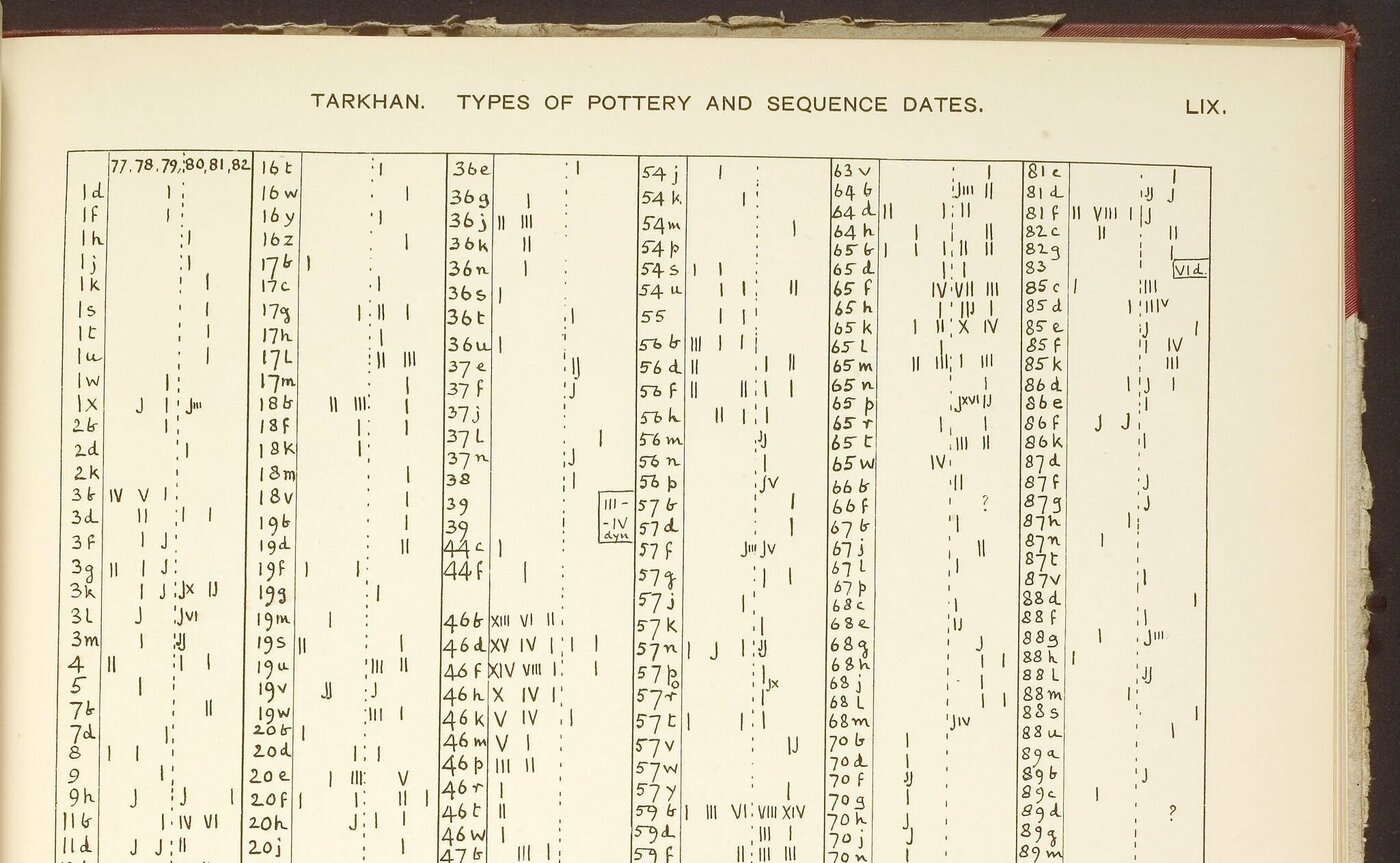 Excavation and Notation: A History of the Archaeological Record, 1890–1980
Excavation and Notation: A History of the Archaeological Record, 1890–1980
Felix Lüttge
f.luettge@ghil.ac.uk
Since the Middle Ages, metaphors of readability have been central to scholarly descriptions of the world: the Book of Nature, the genetic code, the archaeological record. Yet there is no book of nature without writing tools, no archaeological record without recording devices. This project investigates the sites, objects, and subjects of archaeological knowledge produced by notation systems and paper technologies.
It centres on practices of excavation and notation in archaeology since the late nineteenth century, focussing particularly on the history of scholarly methods that were intricately linked to colonial administration and infrastructure. Archaeology took shape as a discipline through the study of ancient societies by British archaeologists in colonial Egypt. The formalisation of excavation as a method, initiated in Egypt around the turn of the twentieth century, culminated in British-led excavations in 1940s India and newly formed Pakistan. The standards and methodologies established by the British during the late nineteenth and early twentieth centuries extended far beyond the boundaries of Empire, shaping archaeological practice globally.
This research examines how media technologies established relationships between archaeological finds to reveal the media history of changing conceptions of archaeological ‘contexts’: How have different notation systems, colonial bureaucracies, and political economies of Empire contributed to forging archaeology’s big picture(s) of material and cultural evolution, prehistoric modes of production, and ancient ecologies?
By foregrounding media and recording practices, the project highlights archaeology’s assertion as a modern science between colonial administration and agricultural modernisation, and between destruction and preservation of ancient sites. The study of archaeological forms of documentation, from excavation reports to aerial photography, not only highlights the media-historical conditions of archaeological knowledge production but also situates archaeology within broader socio-political transformations including colonisation, decolonisation, and the ecological shifts in postwar Britain.